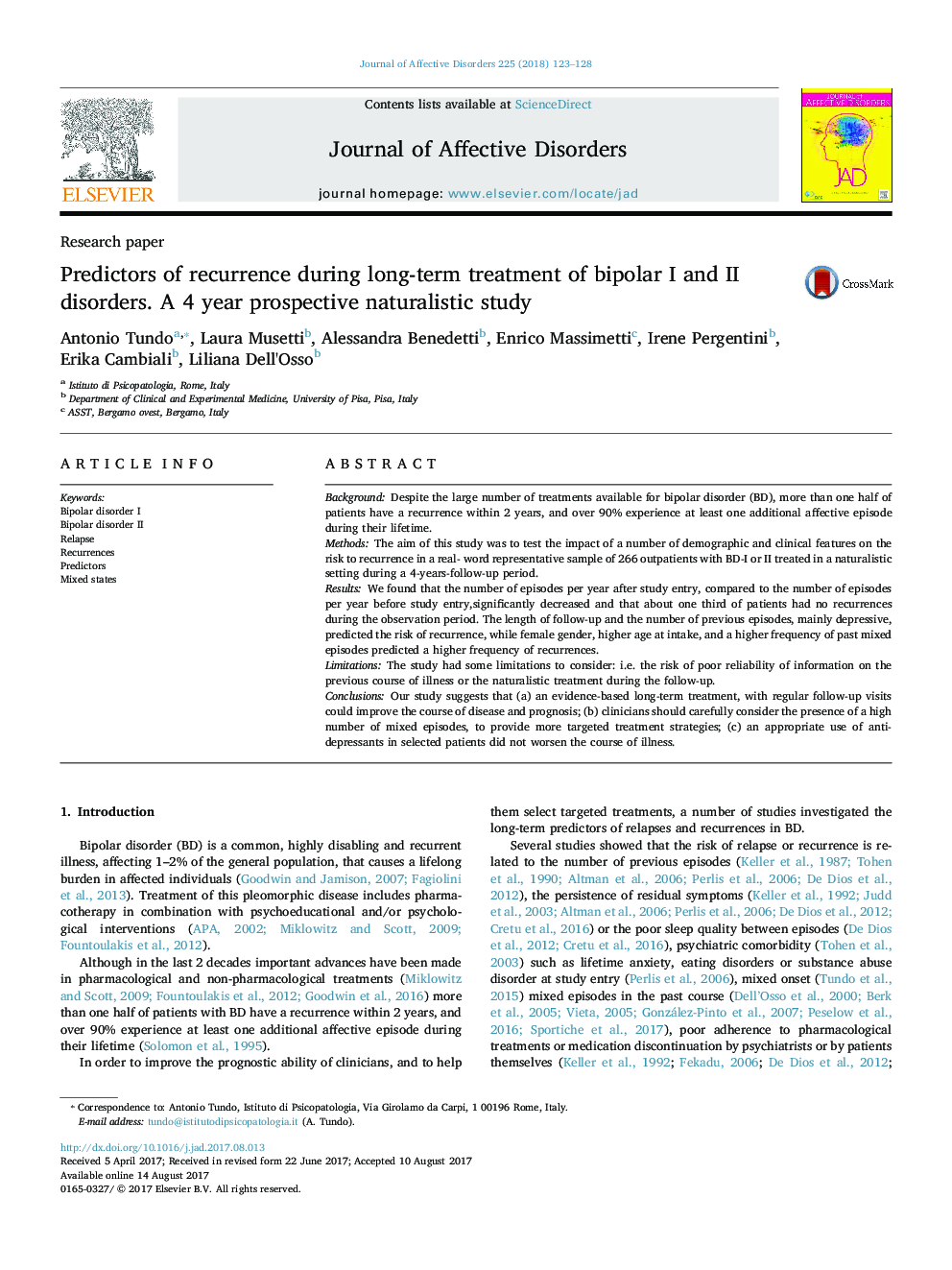| کد مقاله | کد نشریه | سال انتشار | مقاله انگلیسی | نسخه تمام متن |
|---|---|---|---|---|
| 5721698 | 1608100 | 2018 | 6 صفحه PDF | دانلود رایگان |

- Many studies investigated the predictors of relapse and recurrence in BD, sometimes producing conflicting results.
- An evidence-based long-term treatment could improve the course of disease and prognosis.
- The presence of a high number of mixed episodes should orient towards targeted treatment strategies.
- The use of antidepressants does not worsen the course of illness in BD if correctly prescribed.
BackgroundDespite the large number of treatments available for bipolar disorder (BD), more than one half of patients have a recurrence within 2 years, and over 90% experience at least one additional affective episode during their lifetime.MethodsThe aim of this study was to test the impact of a number of demographic and clinical features on the risk to recurrence in a real- word representative sample of 266 outpatients with BD-I or II treated in a naturalistic setting during a 4-years-follow-up period.ResultsWe found that the number of episodes per year after study entry, compared to the number of episodes per year before study entry,significantly decreased and that about one third of patients had no recurrences during the observation period. The length of follow-up and the number of previous episodes, mainly depressive, predicted the risk of recurrence, while female gender, higher age at intake, and a higher frequency of past mixed episodes predicted a higher frequency of recurrences.LimitationsThe study had some limitations to consider: i.e. the risk of poor reliability of information on the previous course of illness or the naturalistic treatment during the follow-up.ConclusionsOur study suggests that (a) an evidence-based long-term treatment, with regular follow-up visits could improve the course of disease and prognosis; (b) clinicians should carefully consider the presence of a high number of mixed episodes, to provide more targeted treatment strategies; (c) an appropriate use of antidepressants in selected patients did not worsen the course of illness.
Journal: Journal of Affective Disorders - Volume 225, 1 January 2018, Pages 123-128